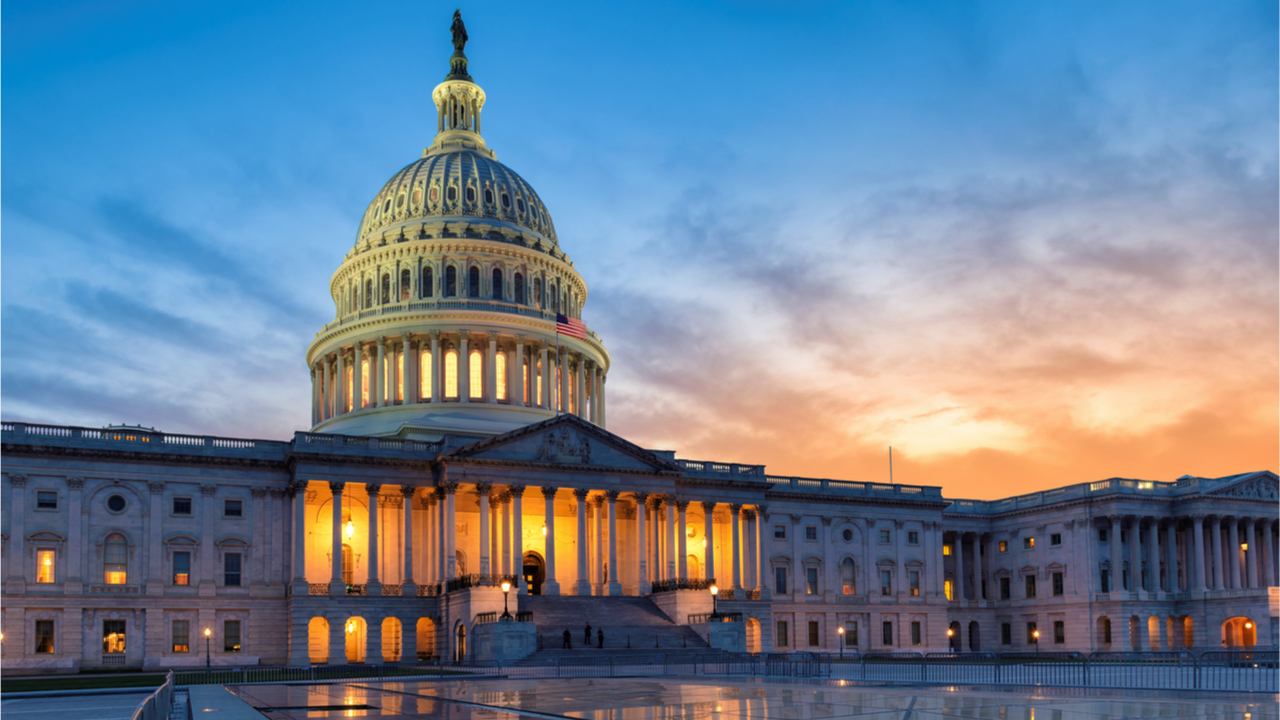
Meltem Demirors sat down with Cointelegraph to express why the industry needs to focus on privacy and freedom when it comes to regulations.
“I like to call myself a future, or aspiring, cult leader,” Meltem Demirors, chief strategy officer of CoinShares — a publicly listed investment firm managing around $5 billion in assets — told Cointelegraph.
Demirors, who first entered the Bitcoin (BTC) space in late 2012, further mentioned that it has been “fun to see how big the crypto sector has become,” noting that people from all walks of life are now interested in the cryptocurrency space. As such, Demirors explained that “crypto cults” are bringing people together in a positive manner, especially since it gives people a sense of purpose and belonging.
When it comes to regulations — one of the most important topics facing the crypto industry today — Demirors expressed skepticism. “Having been in this industry professionally for eight years, I’m tired of talking about regulations, particularly in the United States,” she said. While U.S. regulators continue to pass frameworks around the treatment of digital assets, Demirors pointed out that there has been “too much talk and not enough cogent action.” Moreover, Demirors remarked that a number of crypto bills are attempting to minimize consumer use of encryption, which she believes to be the backbone of the internet.

Demirors elaborated on this topic, along with the development of decentralized autonomous organizations (DAOs) during an interview with Cointelegraph at Consensus 2022.
Cointelegraph: What are your thoughts on recent regulatory frameworks in the United States?
Meltem Demirors: I do think that the Lummis-Gillibrand bill and the Token Taxonomy Act of 2021 have been good attempts at categorizing and classifying digital assets. But, the challenge I have with so many of the crypto bills and regulations is that all are all focused on financial services and taxation. They are focused on where and how we govern, tax and extract value for the government. Therefore, the biggest issues I’m excited about are those centered around consumer privacy, self-sovereignty and freedom of speech, which are not being addressed in these bills.
Unlike so many bills that focus purely on the side of the financial services, the industry needs to focus on crypto infrastructures like data centers, connectivity, computations, semiconductors and the actual plumbing that makes any technology function. We also need to make sure that the U.S. is a friendly jurisdiction for people to develop not only software but also hardware that can be deployed at scale. Today, we have seen no cohesive action on this. The industry has seen a piecemeal approach with the State of New York taking a very draconian approach, while states like Texas and Wyoming want to become homes for crypto mining.
Moreover, the right to consumer and financial privacy are also not being addressed. In fact, most of these bills want more financial surveillance. As an industry, it’s important for us to continue to push back on this, particularly in a world where central bank digital currencies (CBDCs) are being explored.
CT: Any suggestions on what the crypto industry can do to preserve privacy and financial freedom?
MD: I think the biggest movement we’ve seen has been the crypto wars — and I’m talking about cryptography. In the early 90s, there was a massive debate around encryptions and the use of encryption for a variety of consumer-focused applications. Encryption is truly the backbone of the internet and we are seeing a number of bills now attempting to minimize consumer use of encryption and to create back doors.
Yet, once backdoors to encryption are created, they won’t just be used to surveillance consumers but rather will be used against our government. This is now a matter of national security. Therefore, I think the war of encryption is still alive and well. I also think there is more that we can do as an industry to preserve and promote encryption instead of using taxpayer dollars to run challenges that try to crack encryption algorithms, like SHA-256, which is the backbone of Bitcoin.
I also think that preserving code and speech is important. For example, open-source code is a big part of the crypto community, along with anonymous developers. Unfortunately, there are a number of efforts underway to hold open-source developers criminally liable for how their software is leveraged, which is antithetical to the entire open-source movement.
Recent: What happens if you lose or break your hardware crypto wallet?
In addition, we need to consider the treatment of virtual asset service providers, or VASPs. For example, if someone is running a node or if two people are transacting peer-to-peer on an open blockchain protocol, classifying them as VASPs and forcing them to comply with regulation is concerning. There is a bill now that makes people report their social security numbers to anyone sending crypto over an amount of $10,000. This is preposterous and we don’t have that same rule for cash. These are all factors around privacy that make it easier for the government to target individuals that are in the crypto space, so it's important that the industry pushes back.
CT: You mentioned DAOs during your talk at Consensus, can you share your thoughts on this area, please?
MD: Yes, DAOs have been interesting because a lot of what I do at CoinShares is focused on strategy, which means investing, but also looking at what’s happening in the crypto industry and how it’s relevant to the world of investing. So, I experiment with things happening in crypto. For example, I joined a few DAOs recently. I joined Friends With Benefits last year, which was my first DAO experience. I also started two DAOs with friends. One is Hashes DAO, which is an art collecting-focused DAO. The second is a DAO called DAO Jones, which is a funny play, but it’s an investment DAO that uses Syndicate, a platform that allows users to create investment clubs as DAOs that fit into a legal framework.
I’ve learned a lot about DAO tooling, infrastructure and the exciting opportunities around DAOs, along with the inherent limitations. The biggest thing I’ve learned though, is that all communities need leadership. In particular, communities need strong principled leadership to uphold and reinforce community values but to also push the community forward. We have seen so many communities in crypto begin with strong leaders, but then those leaders leave and challenges are created that splinter the community. We saw this with Bitcoin — we saw a struggle for power five years after Satoshi left the Bitcoin community.
Recent: Consensus 2022: Web3, unpacking regulations, and optimism for crypto’s future
Overall, I think DAOs are an exciting area of experimentation, but from an investing perspective, I think DAOs are still very early. There are many people building DAO tooling right now without understanding what emergent behaviors we need to focus on. Governance is not a technology or crypto problem but rather a very human problem that has existed since the early days of civilization. While I’m excited about the future of DAOs, I think there is still a lot of work to do before DAOs get to scale and become implemented in ways that allow for good governance.
CT: What are you most excited about in terms of the crypto space moving forward?
MD: I’m really excited about community-owned infrastructure, or physical infrastructure. Today, crypto is so dependent on centralized service providers like AWS being used for utilities. But, there are a number of efforts underway to build peer-to-peer networks that will enable us to perform computations, have better telecommunications, better broadband connectivity and decentralize and make the energy grid more resilient. I’m excited about taking crypto and combining it with energy computations and connectivity in new ways. This will also make our global systems more resilient, which typically comes with decentralization.
I’m also excited about more developer tools and infrastructure. Right now, the surface area of crypto is so large, so it’s been difficult for people to enter the space to build. Standardization, modulation and convergence around core consensus algorithms are really important. Experimentation has been fun, but we are now learning what does and doesn’t work. Also, thinking about decentralized identifiers and verifiable credentials, along with using Bitcoin as a communication protocol excites me.







